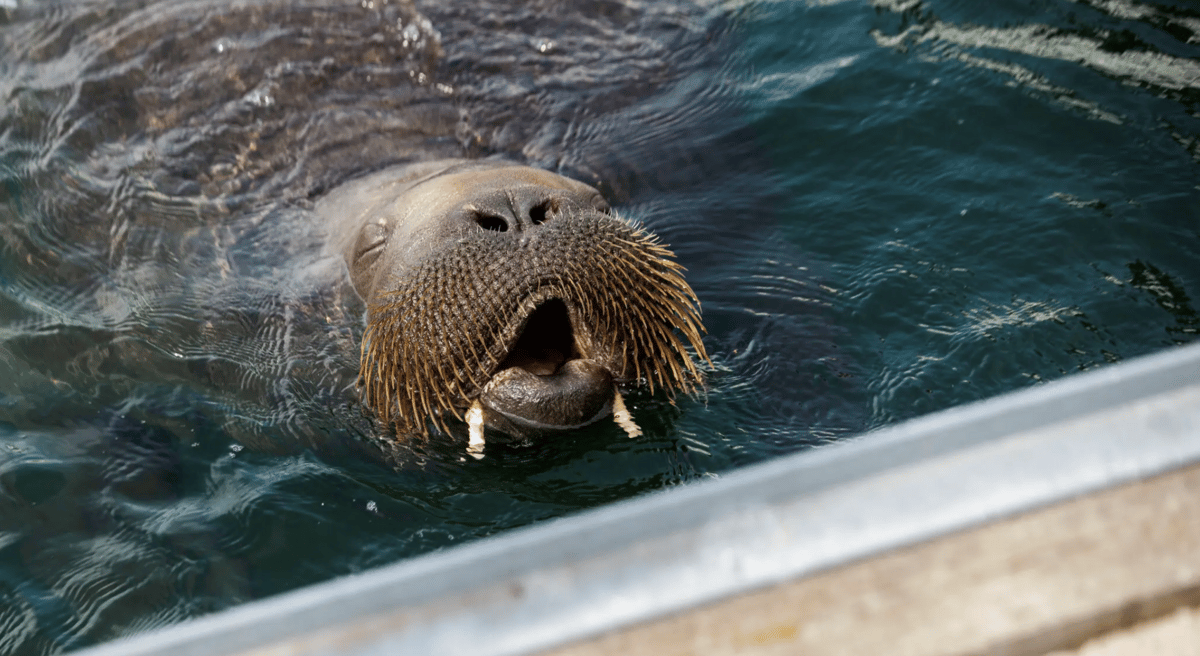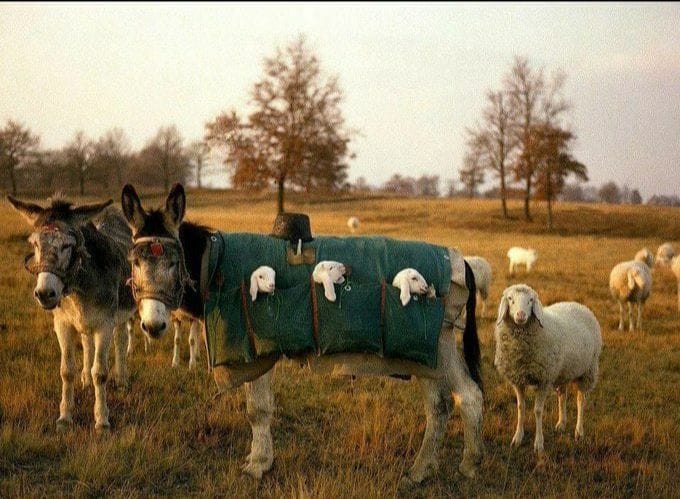
Hi ,
It is a truly global edition of
Weekend Rounds
as we cover stories from Australia, Norway, Turkey, the UK, US, and more! Let's not beat around the bush, and get right to it:
🐅 The de-extinction of an apex predator
🇳🇴 Why did Norway kill a walrus?
🐻 Hallucinating bears
🚀 Quick hits: free well-being webinars and monkeypox jumps to dogs
🐑 Donkey nannies
A research lab at the University of Melbourne has partnered with Dallas-based company, Colossal Biosciences to use CRISPR DNA editing technology to accelerate their efforts toward the de-extinction of the Tasmanian tiger - Australia’s only marsupial apex predator. At first you might be thinking, 'that's very interesting. I bet there are some great applications of this technology.' And you'd be right. Professor Andrew Pask, leader of the Thylacine Integrated Genetic Restoration Research (TIGRR) Lab says the partnership is the most significant contribution to marsupial conservation research in Australia to date. Which sounds great. We're very supportive of marsupial conservation, but then he continues to say that they are also taking on "the grand challenge of de-extincting animals we had lost."Well Dr. Pask. We love the drive to innovate. We love cross sector partnerships and collaboration. We love the animal conservation angle. But if you're looking for some ideas on why bringing back an apex predator might come with some challenges, we respectfully suggest watching a movie or two... perhaps you can start with Jurassic Park?


Freya the Walrus in the Oslo harbour.
Photo credit: Trond Reidar Teigen/NTB, via Reuters
Freya the walrus became a popular attraction for tourists and locals in Oslo this summer. She would climb onto boats and spend time in the harbour, close enough for onlookers to snap a picture. Although they initially seemed to welcome Freya to the harbour, the Norwegian government warned people stay away from the 1,300 pound animal as she relaxed in the harbour. Despite the warnings, people continued to get closer and closer - especially families with young children. Fearful of an accident, they gave an ultimatum for Norwegians to back off.
Last week, in what they would call a proactive measure and what we would call a horrible decision, the Norwegian Directorate of Fisheries authorized the euthanization of Freya. Quickly, and under the cover of darkness, they killed and removed her from the harbour.
The decision has been polarizing to say the least. Some say that Freya should have been moved, not killed. Some are blaming the humans who just couldn't stay away despite the clear warning from the government. And almost no one except the Director General of the Fisheries Department, thinks the right decision was made.
It is yet another example of human interference with the natural world for our own benefit. And a very sad one at that.
High on honey
While Norway was busy euthanizing a walrus, vets in Turkey were busy helping a bear cub who passed out after getting a little too high on 'mad honey'. As the
reports, the honey, which has been cultivated by beekeepers in the Black Sea region and the Himalayas is the result of bees feeding on the pollen of rhododendron flowers. The plants carry a natural neurotoxin called grayanotoxin that can induce euphoria, hallucination and intoxication.
A video showing the bear sitting upright in the back of a pick up truck with her mouth open was shared on social media and earned her the name Balkiz, which means “honey girl” in Turkish.
Mad honey has been a known substance for centuries and was even used in 67 B.C.E. by the
to drug their adversaries to gain an advantage on the battlefield.
We're happy to report Balkiz is doing well, and will spend the rest of her days chasing that first high. We can only assume she was inspired by her idols, the
.
Here are some stories we're following this week from around the veterinary world and animal kingdom:September webinar series to support veterinary mental health [Vet Times]Evidence of human-to-dog transmission of monkeypox virus [The Lancelet]
Monkeypox may become endemic in America's wild animals [Business Standard]
Why do animals have tails? [The Conversation]
Veterinary telehealth service Vetster launches in the UK post expansion in the US [Tech Crunch]
Which animals can best withstand climate change? [Science Daily]



Please take a moment to appreciate
who are used to carry newborn lambs down the mountains for seasonal grazing. Absolutely adorable.
Help us improve Weekend Rounds by letting us know if you enjoyed this newsletter:
Share Weekend Rounds:



